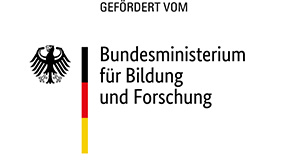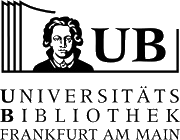Die Selbst- und Praxisreflexion durch den Einsatz von Stimulated Recalls hörbar werden lassen? Die Rekonstruktion von impliziten Deutungs-, Denk- und Handlungsmustern frühpädagogischer Fachkräfte und deren Bedeutung für eine Weiterqualifizierung für Inklusion
Being able to audible to self- and practical reflection of early childhood professionals? The reconstruction of implicit interpretative, thought and action patterns pedagogic professionals and their meaning for qualification for inclusion
DOI:
https://doi.org/10.21248/qfi.45Schlagworte/Keywords
Praxis- und Selbstreflexion, Stimulated Recall, inklusive Spiel- und Lernsituationen, professionelle Handlungskompetenzen pädagogischer Fachkräfte, Sensibilisierende Konzepte, Spannungsverhältnisse, practical and self-reflection, inclusive game- and learning situation, professional action competence of early childhood professionals, sensitizing concepts, social tensionsZusammenfassung
Im Beitrag wird der Einsatz von Stimulated Recalls als Forschungsinstrument diskutiert. Als Stimulus werden eigene Videos aus dem Alltag der pädagogischen Fachkräfte für eine videobasierte Selbst- und Praxisreflexion - bezogen auf die Gestaltung inklusiver Spiel- und Lernsituationen - genutzt. Durch die Verbalisierung der pädagogischen Fachkräfte werden ihre Gedanken, Gefühle und handlungsleitenden Absichten in der jeweiligen Situation hörbar. Dabei bilden die Verbalisierungen der pädagogischen Fachkräfte den Ausgangspunkt zur Rekonstruktion von impliziten Deutungs-, Denk- und Handlungsmustern. Im Beitrag werden Ergebnisse, die im Rahmen des Codierens nach Grounded Theory (Strauss & Corbin, 1996) zweier Stimulated Recall Interviews entstanden sind, vorgestellt. Auf Basis der Ergebnisse werden mögliche Rückschlüsse auf Themenschwerpunkte und Anlässe für eine Praxis- und Selbstreflexion im Rahmen von Weiterqualifizierungen für Inklusion abgeleitet und diskutiert.
Abstract
The article discusses self- and practical reflection of Stimulated Recalls as a scientific research instrument for further qualification for inclusion. Several self-made videos illustrate the daily routine of an early childhood professional, and serve as a video-based self- and practical reflection, with regard to the design of inclusive situations for playing and learning.
The early childhood professional’s thoughts, feelings and guiding actions in each specific situation are made hearable through verbalization. Additionally, the Stimulated Recall Interviews are used by the authors of the article as a scientific research instrument: The verbalizations made by the pedagogic professionals are used as a starting point to reconstruct implicit interpretative, thought and action patterns. The article presents results, based within the framework of coding (Strauss & Corbin, 1996), of two Stimulated Recall Interviews. Based on these results, possible conclusions on thematic foci and reasons for a practical and self-reflection - concerning further qualification for inclusion - are drawn and discussed.



